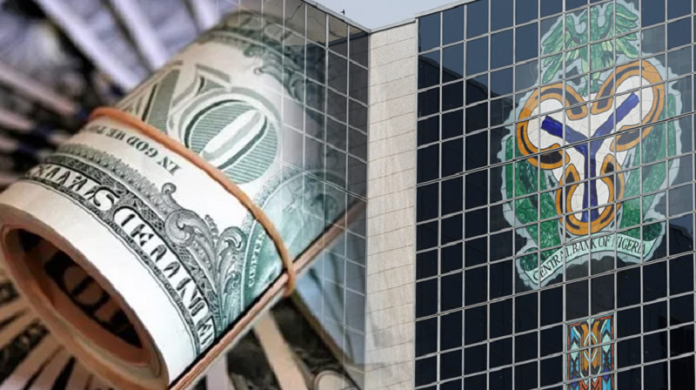The naira saw an uptick to 1,339.33/$ by the close of trading on Monday at the official window, marking a 9.68% rise from Friday’s rate of 1,482.81/$. Data from FMDQ, which monitors the Nigerian Autonomous Foreign Exchange Market, reported a decline in daily turnover to $180.80m from $556.25m on Friday, indicating a 67.50% decrease.
On Monday, the naira hit an intraday high of N1,501 and a low of N1,310 against the dollar at the official market. Meanwhile, at the black market, the naira traded at N1,520, showing a 1.32% depreciation from Friday’s rate of N1,500.
Last Friday, the local currency remained stable against the dollar, wrapping up the week slightly stronger at the official forex market after a period of weakening. Central Bank of Nigeria Governor, Olayemi Cardoso, attributed this to seasonal fluctuations during a post-Monetary Policy Committee meeting press briefing last Tuesday in Abuja.
Cardoso noted, “Members further observed the recent volatility in the foreign exchange market, attributing this to seasonal demand, a reflection of the interplay between demand and supply in a freely functioning market system.”
Meanwhile, data from the CBN indicates a 42% year-on-year decrease in foreign exchange demand for importation and other forex-related activities. Analysis of sectoral forex utilization revealed that 19 sectors and services received $21.12bn forex allocation in 2023, down 41.9% from the $29.98bn disbursed in 2022, according to the CBN’s quarterly statistics report.
The CBN adopts a floating exchange rate system for the naira since June 2023, unifying all forex market segments, resulting in a significant depreciation of the domestic currency against the US dollar and other global currencies
NewsAnalytrics Analysis
-
- Naira Volatility Amidst Appreciation: The recent appreciation of the Nigerian naira against the US dollar, albeit amidst frequent fluctuations, suggests a temporary respite in the currency’s volatility. These fluctuations have been a recurring trend in the Nigerian forex market, driven by various factors such as global economic uncertainties, domestic policy changes, and fluctuations in oil prices, a key export commodity for Nigeria.
- Market Caution and Reduced Turnover: Despite the naira’s appreciation, the decline in daily turnover reflects a cautious approach among market participants. The forex market’s reduced activity may stem from lingering concerns about the sustainability of the naira’s gains, as previous episodes of appreciation have often been short-lived. Traders and investors may be adopting a wait-and-see approach, closely monitoring developments before committing to significant transactions.
- Central Bank’s Role and Policy Impact: The Central Bank of Nigeria (CBN) continues to play a pivotal role in stabilizing the forex market and managing exchange rate fluctuations. However, the effectiveness of its interventions has been challenged by the persistent volatility. While the CBN’s efforts to inject liquidity and regulate the forex market are commendable, sustained stability requires comprehensive policy reforms addressing underlying economic imbalances and structural challenges.
- Seasonal Demand and Policy Response: The CBN Governor’s attribution of recent volatility to seasonal demand underscores the complex nature of exchange rate dynamics in Nigeria. Seasonal fluctuations, coupled with policy responses, create an intricate environment for forex market participants. Addressing these fluctuations requires a multifaceted approach, including targeted policy interventions, improved market transparency, and enhanced economic diversification to reduce dependency on oil revenues.
- Business Implications and Risk Management: For businesses engaged in importation and forex-dependent activities, managing currency risk amidst frequent fluctuations is paramount. Volatile exchange rates can disrupt supply chains, increase input costs, and impact profitability. Implementing robust risk management strategies, such as hedging, diversification, and monitoring market trends, can help mitigate the adverse effects of currency volatility and safeguard against unexpected market movements.
- Long-Term Policy Stability and Economic Resilience: Ultimately, achieving sustained exchange rate stability requires long-term policy coherence, economic resilience, and structural reforms. Addressing fundamental issues such as fiscal sustainability, trade imbalances, and investment climate improvements is essential for restoring market confidence, attracting foreign investment, and fostering sustainable economic growth in Nigeria.
In conclusion, while the recent appreciation of the naira provides a temporary reprieve, addressing the root causes of currency volatility and fostering long-term exchange rate stability necessitate comprehensive policy reforms, proactive risk management, and a resilient economic framework capable of withstanding external shocks and domestic challenges.


